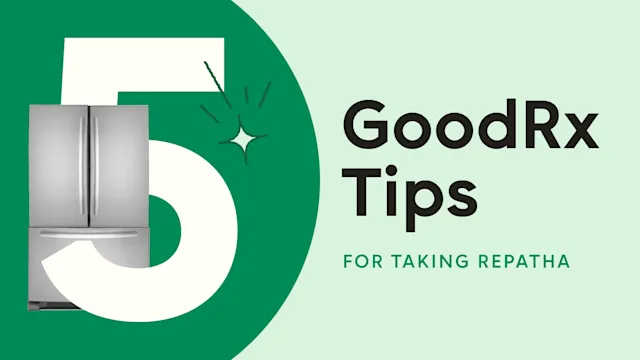Key takeaways:
Certain medications can raise your cholesterol levels. Isotretinoin (Claravis), diuretics, and some beta blockers can all cause high cholesterol.
Other medications that can cause high cholesterol include sodium-glucose cotransporter-2 (SGLT2) inhibitors, corticosteroids, and danazol. Antiviral medications that treat HIV and hepatitis C can also increase your cholesterol levels.
Mental health medications, such as antipsychotics and some antidepressants, can cause high cholesterol. But the risks aren’t the same for every medication in these drug classes. Hormonal birth control can also raise cholesterol and isn’t recommended for those with a high risk for heart disease.
In most cases, your prescriber will keep an eye on your cholesterol levels during treatment with these medications. They may change your treatment or add a medication to lower your cholesterol if needed.
Cholesterol is important for building cells, but too much “bad” cholesterol (low-density lipoprotein, or LDL) or high triglyceride levels can increase your risk of heart disease and stroke. When people think about high cholesterol, they often focus on diet, lifestyle, or genetics as possible causes. But certain medications can raise your cholesterol levels, too.
Below, we’ll explore nine medications that can cause high cholesterol levels. Keep in mind that the benefits of these medications often outweigh the risk of higher cholesterol. So you shouldn’t stop taking them without talking to your healthcare team first.
1. Isotretinoin
Isotretinoin (Claravis, Amnesteem), previously known as Accutane, is a lab-made form of vitamin A that treats acne. Isotretinoin can raise LDL levels. It can also lower levels of “good” cholesterol (high-density lipoprotein, or HDL). In most cases, these changes are small and aren’t a major concern. But some people taking isotretinoin also experience a significant increase in their triglyceride levels. This can lead to pancreatitis (inflammation of the pancreas).
Usually, cholesterol changes occur within the first 8 weeks of taking isotretinoin. Your prescriber may keep an eye on your cholesterol levels during this time. Let them know if you experience pancreatitis symptoms, such as nausea and vomiting, a swollen or painful abdomen, and clay-colored stools.
2. Diuretics
Diuretics, often called "water pills," remove excess fluid from the body. Certain types of diuretics, such as thiazide and loop diuretics, can also affect your cholesterol levels.
Thiazide diuretics, such as hydrochlorothiazide (Microzide), can raise LDL levels by up to 10% and triglycerides by up to 15%. These effects are more likely with dosages over 25 mg per day. Loop diuretics, such as furosemide (Lasix), can also increase LDL and triglyceride levels. But these effects typically only occur in the hours after taking your dose and don’t seem to be long-lasting.
Keep in mind that diuretics have significant heart-related benefits that outweigh the risk of increased cholesterol. If your cholesterol increases while taking one, your prescriber may lower your daily diuretic dose or take other steps to manage it.
3. Beta blockers
Beta blockers are medications that treat high blood pressure and other heart-related conditions. Some beta blockers can raise triglyceride levels and lower HDL levels. But other beta blockers aren’t likely to affect cholesterol levels at all.
Common beta blockers that are more likely to increase your cholesterol levels include:
Atenolol (Tenormin)
Bisoprolol (Zebeta)
Nadolol (Corgard)
Propranolol (Inderal, Inderal LA)
Like diuretics, beta blockers provide significant benefits for your heart that usually outweigh the risk of cholesterol changes. And in some cases, cholesterol levels may return to normal over time. But if they become too high during treatment, your prescriber may decide to try a different beta blocker that’s less likely to affect them.
4. SGLT2 inhibitors (flozins)
Sodium-glucose cotransporter-2 (SGLT2) inhibitors (“flozins,” for short) treat conditions such as Type 2 diabetes, heart failure, and chronic kidney disease (CKD). They work by removing excess blood glucose (sugar) from the body in your urine. Medications in this class include:
Canagliflozin (Invokana)
Dapagliflozin (Farxiga)
Empagliflozin (Jardiance)
Ertugliflozin (Steglatro)
Flozins can raise HDL levels and may lower triglycerides — both of which are good things. However, they can also raise LDL levels.
That being said, these medications have significant health benefits despite their potential negative effect on LDL levels. So you should continue taking them unless your prescriber says otherwise. If needed, they can prescribe another medication to manage your cholesterol while you’re taking an SGLT2 inhibitor.
5. Corticosteroids
Corticosteroids, such as prednisone, reduce inflammation in the body. They’re commonly used to manage allergic reactions or the symptoms of certain chronic health conditions.
It isn’t clear how corticosteroids affect cholesterol levels. Some research shows that corticosteroids may raise your triglyceride and LDL levels. But other studies show no effect or even a beneficial effect of steroids on cholesterol levels. So it may depend on other factors, such as what health condition the steroid is treating. High cholesterol from corticosteroids also seems more likely for women than men.
Your prescriber will likely follow your cholesterol levels closely and take steps to manage them if you take a corticosteroid regularly.
6. Danazol
Danazol is a medication that treats endometriosis and hereditary angioedema (an inherited condition that causes severe swelling). It can lower HDL levels by up to 50% while raising LDL levels by up to 40%.
Cholesterol levels generally return to baseline once you stop taking danazol. But if you’re at high risk for heart disease or take danazol for a long period of time, these cholesterol changes may be more concerning. Talk to your prescriber about the risks and benefits of taking danazol based on your personal history.
7. Antiviral medications
Two types of antiviral medications — protease inhibitors and direct-acting antivirals (DAAs) — may also raise your cholesterol levels.
Protease inhibitors
Protease inhibitors are included in several HIV medications as well as Paxlovid (nirmatrelvir / ritonavir). They can raise triglyceride and LDL levels. Of the medications in this class, ritonavir (Norvir) seems to raise cholesterol levels the most.
Paxlovid is a short-term treatment, so its effect on cholesterol isn’t very concerning. But other protease inhibitors are taken long term for HIV. Your prescriber will likely check your cholesterol levels throughout treatment. In some cases, they may change your HIV treatment or add a medication to help manage your levels.
Direct-acting antivirals (DAAs)
DAAs may increase both LDL and HDL levels. These medications treat hepatitis C, and you typically only take them for 8 to 12 weeks. But their effect on cholesterol can persist even after you finish taking them.
It’s not clear what impact the cholesterol changes caused by DAAs may have on your overall health. But it’s definitely less risky than the effects of untreated hepatitis C. Talk to your prescriber about any concerns you have about DAAs and cholesterol if you need to take them.
8. Mental health medications
Medications that treat mental health conditions, such as antipsychotics and antidepressants, can also cause high cholesterol levels.
Antipsychotics
Antipsychotic medications help treat mental health conditions such as severe depression, schizophrenia, and bipolar disorder. People taking antipsychotics are almost three times more likely to have high cholesterol levels than those who don’t. It’s not clear why these medications raise cholesterol levels, but it may be related to weight gain caused by these medications.
Olanzapine (Zyprexa), clozapine (Clozaril), and quetiapine (Seroquel) seem to have the highest risk for raising cholesterol levels. Your healthcare team may avoid these options if you have a history of heart disease. Or they may monitor your cholesterol levels and take steps to manage them if your levels go too high.
Antidepressants
Antidepressants can raise your cholesterol levels. They can also cause weight gain, which may contribute to higher cholesterol levels. The risk of high cholesterol differs among types of antidepressants. And studies show conflicting results in some cases.
Antidepressants that may raise cholesterol levels include:
Venlafaxine (Effexor, Effexor XR)
Paroxetine (Paxil)
Sertraline (Zoloft)
Fluoxetine (Prozac)
Citalopram (Celexa)
Escitalopram (Lexapro)
What you eat and how much you exercise may have a greater impact on your cholesterol than the antidepressant itself. So be sure to maintain healthy habits or incorporate them into your routine if you start taking one of these medications. Your provider may also check your cholesterol levels and take steps to manage them if they increase during treatment.
9. Hormonal birth control
The estrogen and progestins in hormonal birth control can affect your cholesterol levels. Estrogen can have beneficial effects on HDL and LDL levels, but it can also raise triglyceride levels. Progestins can increase LDL and decrease HDL and triglyceride levels. Androgenic progestins, such as norethindrone, are more likely to increase your cholesterol than other progestins.
In most cases, the increase in cholesterol from birth control is small. So if you don’t have high cholesterol, it’s likely fine to take it. But if you have a high risk of heart disease or uncontrolled high cholesterol levels, a different form of birth control, such as an intrauterine device (IUD), may be a safer option.
Frequently asked questions
No. Thyroid hormone medications don’t cause high cholesterol. In fact, the opposite is true. When thyroid hormone levels are low (hypothyroidism), cholesterol levels tend to rise. Thyroid medications, such as levothyroxine (Synthroid), bring thyroid hormone levels up to normal. This helps lower cholesterol in most cases.
Yes. Fish oil supplements contain omega-3 fatty acids, which have several benefits in the body. But over-the-counter (OTC) fish oil supplements may also contain harmful fats that raise your cholesterol levels. Talk to your healthcare team about which supplement type and dosage are best if they recommend you take an omega-3 supplement. A prescription omega-3 fatty acid medication may also be an option if your prescriber recommends it.
No. Thyroid hormone medications don’t cause high cholesterol. In fact, the opposite is true. When thyroid hormone levels are low (hypothyroidism), cholesterol levels tend to rise. Thyroid medications, such as levothyroxine (Synthroid), bring thyroid hormone levels up to normal. This helps lower cholesterol in most cases.
Yes. Fish oil supplements contain omega-3 fatty acids, which have several benefits in the body. But over-the-counter (OTC) fish oil supplements may also contain harmful fats that raise your cholesterol levels. Talk to your healthcare team about which supplement type and dosage are best if they recommend you take an omega-3 supplement. A prescription omega-3 fatty acid medication may also be an option if your prescriber recommends it.
The bottom line
Certain medications can cause high cholesterol. Common examples include isotretinoin (Claravis), diuretics, and some beta blockers. Other medications that can cause high cholesterol include antiviral medications that treat HIV and hepatitis C. So can sodium-glucose cotransporter-2 (SGLT2) inhibitors, corticosteroids, and danazol.
Mental health medications, such as antipsychotics and some antidepressants, can cause high cholesterol. But the risks aren’t the same for every medication in these drug classes. Hormonal birth control can also raise cholesterol and isn’t recommended for those with a high risk for heart disease.
In most cases, your prescriber will keep an eye on your cholesterol levels during treatment with these medications. They may change your treatment or add a medication to lower your cholesterol if needed.

Why trust our experts?



References
Anderson, J., et al. (2009). Viral protease inhibitors. Handbook of Experimental Psychology.
Armstrong, C., et al. (2007). ACOG releases guidelines on hormonal contraceptives in women with coexisting medical conditions. American Family Physician.
Arumugham, V. B., et al. (2023). Therapeutic uses of diuretic agents. StatPearls.
Ashfaq, S., et al. (2024). Danazol. StatPearls.
Bechmann, L. E., et al. (2024). SGLT2-inhibition increases total, LDL, and HDL cholesterol and lowers triglycerides: Meta-analyses of 60 randomized trials, overall and by dose, ethnicity, and drug type. Atherosclerosis.
Beyazyüz, M., et al. (2013). Relationship between SSRIs and metabolic syndrome abnormalities in patients with generalized anxiety disorder: A prospective study. Psychiatry Investigation.
Biondi, B. (2021). Levothyroxine and the heart. 70 Years of Levothyroxine. Springer.
Carli, M., et al. (2021). Atypical antipsychotics and metabolic syndrome: From molecular mechanisms to clinical differences. Pharmaceuticals.
Centers for Disease Control and Prevention. (2024). Appendix K: Summary of classifications for hormonal contraceptive methods and intrauterine devices.
Choi, H. K., et al. (2005). Glucocorticoid use and serum lipid levels in US adults: The Third National Health and Nutrition Examination Survey. Arthritis Care & Research.
Fatima, A., et al. (2023). Exploring the cardiovascular benefits of sodium-glucose cotransporter-2 (SGLT2) inhibitors: Expanding horizons beyond diabetes management. Cureus.
Fonseca, V. A., et al. (2010). Effects of β-blockers on glucose and lipid metabolism. Current Medical Research and Opinion.
Geddawy, A., et al. (2017). Direct acting anti-hepatitis C virus drugs: Clinical pharmacology and future direction. Journal of Translational Internal Medicine.
Hashemi, S. J., et al. (2023). Association between oral contraceptives with lipid profile: Results from Hoveyzeh cohort study (HCS). BMC Women’s Health.
Herink, M., et al. (2018). Medication induced changes in lipid and lipoproteins. Endotext. MD Text.
Kızılyel, O., et al. (2014). Effects of oral isotretinoin on lipids and liver enzymes in acne patients. Cutis.
Kittisupamongkol, W. (2010). Effect of beta blockers on patient's lipid profiles. American Family Physician.
Levy, A. R., et al. (2005). Changes in lipids over twelve months after initiating protease inhibitor therapy among persons treated for HIV/AIDS. Lipids in Health and Disease.
McEldrew, E. P., et al. (2023). Vitamin A. StatPearls.
Olguner Eker, Ö., et al. (2017). Metabolic effects of antidepressant treatment. Archives of Neuropsychiatry.
Richards-Belle, A., et al. (2023). Associations of antidepressants and antipsychotics with lipid parameters: Do CYP2C19/CYP2D6 genes play a role? A UK population-based study. Journal of Psychopharmacology.
Sajid, M., et al. (2024). Isotretinoin’s effect on fasting lipid profile in acne patients. Journal of the College of Physicians and Surgeons Pakistan.
Sherratt, S. C. R., et al. (2020). Are dietary fish oil supplements appropriate for dyslipidemia management? A review of the evidence. Current Opinion in Lipidology.
Sholter, D. E., et al. (2000). Adverse effects of corticosteroids on the cardiovascular system. The Canadian Journal of Cardiology.
Stanford, A. (2023). Cholesterol and HIV. Aidsmap.
Tziomalos, K., et al. (2011). Dyslipidemia induced by drugs used for the prevention and treatment of vascular diseases. The Open Cardiovascular Medicine Journal.
Villani, R., et al. (2021). Serum lipid profile in HCV patients treated with direct-acting antivirals: A systematic review and meta-analysis. Scientific Reports.
Weir, M. R., et al. (2000). Diuretics and beta-blockers: Is there a risk for dyslipidemia? The American Heart Journal.
Yassir, M., et al. (2023). Corticosteroid adverse effects. StatPearls.














